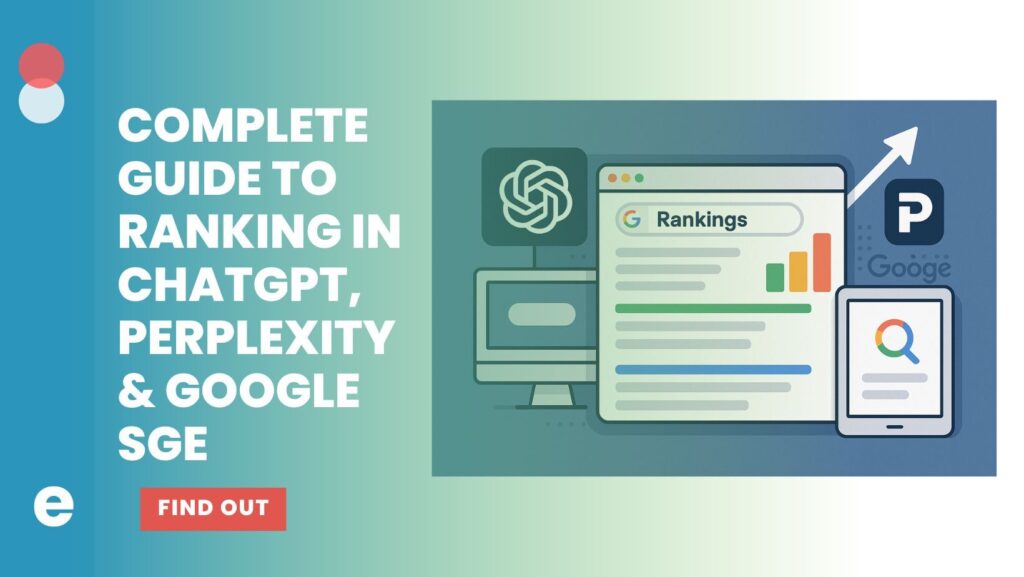Search engine optimization (SEO) focuses on driving traffic to websites. Traditional strategies aim to rank pages higher on search engine results pages (SERPs) and use enticing copy to attract clicks. However, the rise of zero-click searches has shifted this dynamic. Businesses and marketers must now adapt to this change to remain competitive. This is one of the areas within SEO that we guide our clients through at Enilon. As you are preparing for the zero-click shift, we wanted to share some more information to help you on your way.
What Are Zero-Click Searches?
Zero-click searches occur when users find the information they need directly on the search results page. They do not need to click through to a website. These results often come from featured snippets, knowledge panels, and other rich search results.
For example:
- Featured snippets display concise answers to user queries at the top of the page.
- Knowledge panels provide detailed information about entities, such as companies, people, or locations.
- Instant answers show calculations, conversions, or other straightforward results directly in the SERP.
Why Are Zero-Click Searches Growing?
Zero-click searches are growing because users want faster answers. Search engines aim to provide a better user experience by reducing the steps needed to find information. Mobile searches and voice assistants have also fueled this trend. People expect quick, accurate answers without needing to open multiple tabs.
How Do Zero-Click Searches Affect SEO?
Zero-click searches reduce organic traffic to websites. When search engines answer user queries directly, fewer people visit the sites providing that information. This change impacts:
- Click-through rates (CTR): Pages that previously attracted high clicks may see a decline.
- Keyword targeting: Informational keywords are more likely to trigger zero-click results.
- Content strategies: Businesses must rethink how they deliver value if fewer users visit their pages.

Adapting to Zero-Click SEO
Adapting to zero-click SEO requires a shift in focus. Instead of solely driving clicks, businesses should aim to build visibility and authority. Below are key strategies:
1. Optimize for Featured Snippets
Featured snippets dominate zero-click searches. To increase your chances of being featured:
- Use question-based keywords.
- Provide concise, direct answers.
- Format content with clear headings, bullet points, or numbered lists.
- Include tables or charts if relevant.
2. Strengthen Brand Visibility
Brand visibility is critical when users engage less with websites. Ensure your brand appears prominently in search results by:
- Claiming and optimizing Google Business Profiles.
- Using schema markup to enhance how search engines display your content.
- Creating authoritative, shareable content that builds trust.
3. Target Transactional Keywords
While informational queries often lead to zero-click results, transactional keywords drive clicks. Focus on terms with commercial intent, such as “buy,” “best price,” or “near me.”
4. Invest in Local SEO
Local searches often trigger zero-click results, like maps or local business listings. To succeed in local SEO:
- Keep your business name, address, and phone number (NAP) consistent.
- Collect positive reviews on platforms like Google and Yelp.
- Use local keywords in your content.
5. Improve On-SERP Assets
Treat the SERP as an extension of your brand. Even if users don’t click, make sure your presence there leaves an impression. Optimize:
- Titles and meta descriptions for maximum impact.
- Images to display correctly in search results.
- Structured data to enhance how search engines interpret your content.
How to Measure Success in a Zero-Click Landscape
Traditional SEO metrics, such as clicks and traffic, may not fully capture success in a zero-click environment. Consider these alternative metrics:
- Search impressions: Track how often your content appears in search results.
- Brand searches: Monitor how often people search directly for your brand.
- Engagement metrics: Analyze how users interact with other touchpoints, such as social media or email campaigns.
- Conversion rates: Evaluate whether fewer clicks still lead to meaningful actions, like purchases or sign-ups.
What are the Challenges of Zero-Click SEO?
Zero-click searches present challenges for businesses. They limit direct traffic, making it harder to monetize through ads or lead generation. Additionally, search engines control the presentation of information, reducing opportunities for differentiation.
However, these challenges also create opportunities. Businesses that adapt can position themselves as leaders in their industry. Focus on building authority and meeting user needs in innovative ways.

The Role of Voice Search
Voice search is accelerating the growth of zero-click searches. Devices like smart speakers often provide a single spoken answer. To optimize for voice search:
- Use natural, conversational language in your content.
- Focus on long-tail keywords and question phrases.
- Ensure your site loads quickly and performs well on mobile devices.
The Future of SEO
Zero-click searches are reshaping the future of SEO. Businesses that rely on traditional traffic-driving methods must evolve. To stay competitive, focus on:
- Building a strong brand presence.
- Providing value across multiple channels.
- Embracing new technologies and search behaviors.
Final Thoughts
Zero-click searches are not the end of SEO but a transformation. By adapting strategies to fit this new landscape, businesses can thrive. Focus on visibility, authority, and user experience to succeed in the age of zero-click searches.
Looking to stay ahead in the ever-changing SEO landscape? Enilon’s team of digital marketing experts can help you craft innovative strategies that drive results, even in a zero-click environment. Contact us today to learn how we can elevate your brand and maximize your online visibility.


